Related Research Articles

May is the fifth month of the year in the Julian and Gregorian calendars. Its length is 31 days.
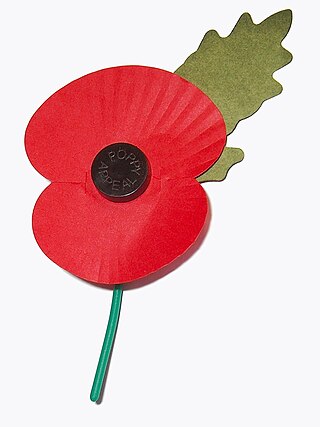
Remembrance Day is a memorial day observed in Commonwealth member states since the end of the First World War to honour armed forces members who have died in the line of duty. The day is also marked by war remembrances in several other non-Commonwealth countries. In most countries, Remembrance Day is observed on 11 November to recall the end of First World War hostilities. Hostilities ended "at the 11th hour of the 11th day of the 11th month" of 1918, in accordance with the armistice signed by representatives of Germany and the Entente between 5:12 and 5:20 that morning. The First World War formally ended with the signing of the Treaty of Versailles on 28 June 1919.

Since the Partition of British India in 1947 and subsequent creation of the dominions of India and Pakistan, the two countries have been involved in a number of wars, conflicts, and military standoffs. A long-running dispute over Kashmir and cross-border terrorism have been the predominant cause of conflict between the two states, with the exception of the Indo-Pakistani War of 1971, which occurred as a direct result of hostilities stemming from the Bangladesh Liberation War in erstwhile East Pakistan.
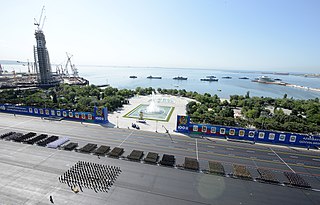
An Armed Forces Day, alongside its branch-specific variants often referred to as Army or Soldier's Day, Navy or Sailor's Day, and Air Force or Aviator's Day, is a holiday dedicated to honoring the armed forces, or one of their branches, of a sovereign state, including their personnel, history, achievements, and perceived sacrifices. It's often patriotic or nationalistic in nature, carrying propaganda value outside of the conventional boundaries of a military's subculture and into the wider civilian society. Many nations around the world observe this day. It is usually distinct from a Veterans or Memorial Day, as the former is dedicated to those who previously served and the latter is dedicated to those who perished in the fulfillment of their duties.

International Mother Language Day is a worldwide annual observance held on 21 February to promote awareness of linguistic and cultural diversity and to promote multilingualism. First announced by UNESCO on 17 November 1999, it was formally recognized by the United Nations General Assembly with the adoption of UN resolution 56/262 in 2002.
Martyrs' Day are days observed in or by some countries, incl. the United States, Japan, India, Brazil, Canada and Australia, to recognise martyrs such as soldiers, revolutionaries or victims of genocide. Below is a list of various Martyrs' Days for different countries of the World.

Independence Day, observed annually on 14 August, is a national holiday in Pakistan. It commemorates the day when Pakistan achieved independence from the United Kingdom and was declared a sovereign state following the termination of the British Raj between the 14th and 15th August 1947. By the time of independence, Pakistan retained King George VI and after 1952, Queen Elizabeth II as head of state until its transition into a republic in 1956. The nation came into existence as a result of the Pakistan Movement, which aimed for the creation of an independent Muslim state in the north-western regions of British India via partition. The movement was led by the All-India Muslim League under the leadership of Muhammad Ali Jinnah. The event was brought forth by the Indian Independence Act 1947 under which the British Raj gave independence to the Dominion of Pakistan which comprised West Pakistan and East Pakistan. That year the day of independence coincided with 27 Ramadan of the Islamic calendar, the eve of which, one of the five nights on which Laylat al-Qadr may occur, is regarded as sacred by Muslims.
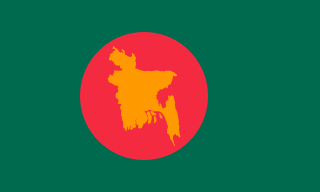
Independence and National Day is celebrated on 26 March as a national holiday in Bangladesh. It commemorates the country's declaration of independence from Pakistan in the early hours of 26 March 1971.
Accession Day is a public holiday in the Union Territory of Jammu and Kashmir, commemorating 26 October 1947, when Maharaja Hari Singh signed off the Instrument of Accession, in which Jammu and Kashmir joined the Dominion of India. It became an official public holiday in Jammu and Kashmir for the first time in 2020.
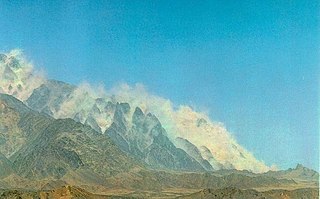
Youm-e-Takbir is celebrated as a national day in Pakistan on 28 May in commemoration of Chagai-I and Chagai-II series of nuclear tests. The nuclear tests made Pakistan the seventh nation to possess nuclear weapons and the first in the Muslim world.

On 7 April 2012, an avalanche hit a Pakistan Army base in Gayari Sector, near the Siachen Glacier region, trapping 140 soldiers and civilian contractors under deep snow. The incident occurred at an altitude of about 4,000 meters and 300 km northeast of Skardu. It was the worst avalanche that the Pakistani military has experienced in the area.
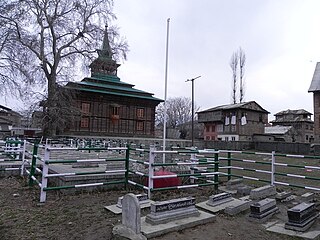
KashmirMartyrs' Day or Kashmir Day, was a former official state holiday observed in Kashmir in remembrance of 21 Muslim protesters killed on 13 July 1931 by Dogra forces of the princely state of Jammu and Kashmir in British India.

Independence Day, observed annually on 27 June, is a national holiday in Djibouti. It marks the territory's declaration of independence from France. An independence referendum was held in the French Territory of the Afars and the Issas on 8 May 1977 alongside elections for a Constituent Assembly. Unlike previous plebiscites in 1958 and 1967, this time the territory became independent as Djibouti on 27 June 1977. Djibouti Independence Day is a national holiday, with workers given a day off. Independence Day is associated with military parades, fireworks, concerts, fairs, and political speeches and ceremonies, in addition to various other public and private events celebrating the history and culture of Djibouti.
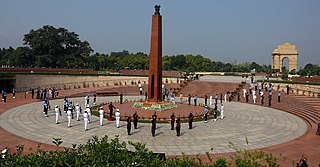
The National War Memorial is a war memorial in New Delhi, Delhi, India, located at India Gate Circle. It has been built to honour and remember soldiers of the Indian Armed Forces who fought in armed conflicts of independent India. The names of armed forces personnel martyed during the armed conflicts with Pakistan and China as well as the 1961 War in Goa, Operation Pawan, and other operations such as Operation Rakshak are inscribed on the memorial walls in golden letters.

Commemoration Day, previously known as Martyrs' Day, is a national holiday in the United Arab Emirates recognizing the sacrifices and dedication of Emirati martyrs who have given their life in the field of civil, military and humanitarian service. The day is marked annually on 30th of November, but observed with a public holiday on the 1st of December. It was in 2015, when the late His Highness Sheikh Khalifa Bin Zayed Al Nahyan, declared the day as Martyrs Day in honor of those who sacrificed their lives for the country. The observance and public holiday were both previously held on 30th of November (pre-2019).
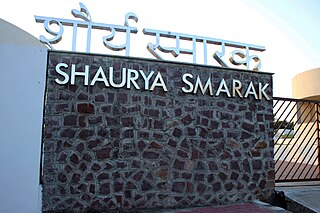
Shaurya Smarak is a war memorial situated at Bhopal, inaugurated by the Prime Minister of India Narendra Modi on 14 October 2016. Shaurya Smarak is established by the government of Madhya Pradesh at Bhopal in the heart area of Arera Hills near M.P. Nagar and Secretariat. It is sprawled over a large area of about 12 acres. It is developed as a public park with imaginative and interesting architectural installations depicting the sacrifice of the soldiers. In the park, there is a 62-feet high sculpture rising from the ground called Shaurya Stambh depicting the Indian Army, Navy, and Air Force. The Army is signified by Granite, The Navy in Grey, and the Air Force in White. Around the Shaurya Stambh names of the martyred soldiers have been inscribed on glass boards. Beside the Shaurya Stambh, there is Smarak Jyoti which is lit in holographic flame for the honor of the martyrs. Not only this there is a red sculpture kept in the park which when seen from the main axis it appears as a 'Namaskar' and when looked at from another axis it appears as 'A Drop of Blood'.It is the first war memorial of the country built in the memory of martyrs.
Martyrs' Day is celebrated in China on September 30, the eve of the National Day of the People's Republic of China, to commemorate those who lost their lives serving China. It was created by the Standing Committee of the National People's Congress in 2014.
Inter-Services Public Relations of Pakistan produced many media productions. Since the 1990s, the ISPR has been producing dramas, songs, films on military fiction, games and military reality shows. The drama Alpha Bravo Charlie was a hit drama by ISPR during the late 1990s. This is a list of songs, shows, games, films and dramas produced by ISPR. Their purpose is to highlight the sacrifices made by the lionhearted Ghazi (veterans) and shaheed (martyrs) of the Pakistani Armed Forces.
Youm-e-Istehsal is observed in Pakistan on 5 August, as part of the Kashmir conflict with neighbouring India. It decries the day on which the Indian government revoked Jammu and Kashmir's special status in 2019, abolishing the State of Jammu and Kashmir and replacing it with Jammu and Kashmir in the west and Ladakh in the east; both regions are claimed by Pakistan in their entirety. The day is presented as an expression of Pakistani solidarity with the Kashmiri people, who are indigenous to the Muslim-majority Kashmir Valley.

In the Israeli–Palestinian conflict, the term shahid is used by Palestinians to refer to any killed Palestinian civilian or fighter, regardless of their religious affiliation, and regardless of whether or not their killing was the result of a targeted attack. Initially, the concept of self-sacrifice for a cause was popular among the Palestinian fedayeen, who were actively engaged in a military struggle against Israel and the Israeli occupation, with the concept peaking in the 1960s. Gradually, the concept adopted an Islamic meaning and became more widespread after the First Intifada in 1987.
References
- ↑ "On the misconceptions about Pakistan's Defence and Martyrs' Day".
- ↑ "Pak Army to observe April 30 as 'Youm-e-Shuhada'". 29 April 2010.
- ↑ "Pakistan Army observes Martyrs' Day". 30 April 2010.
- ↑ "Ae Rah-e-haq Ke Shaheedon: Youm-e-Shuhada observes today 30 April". 30 April 2014.